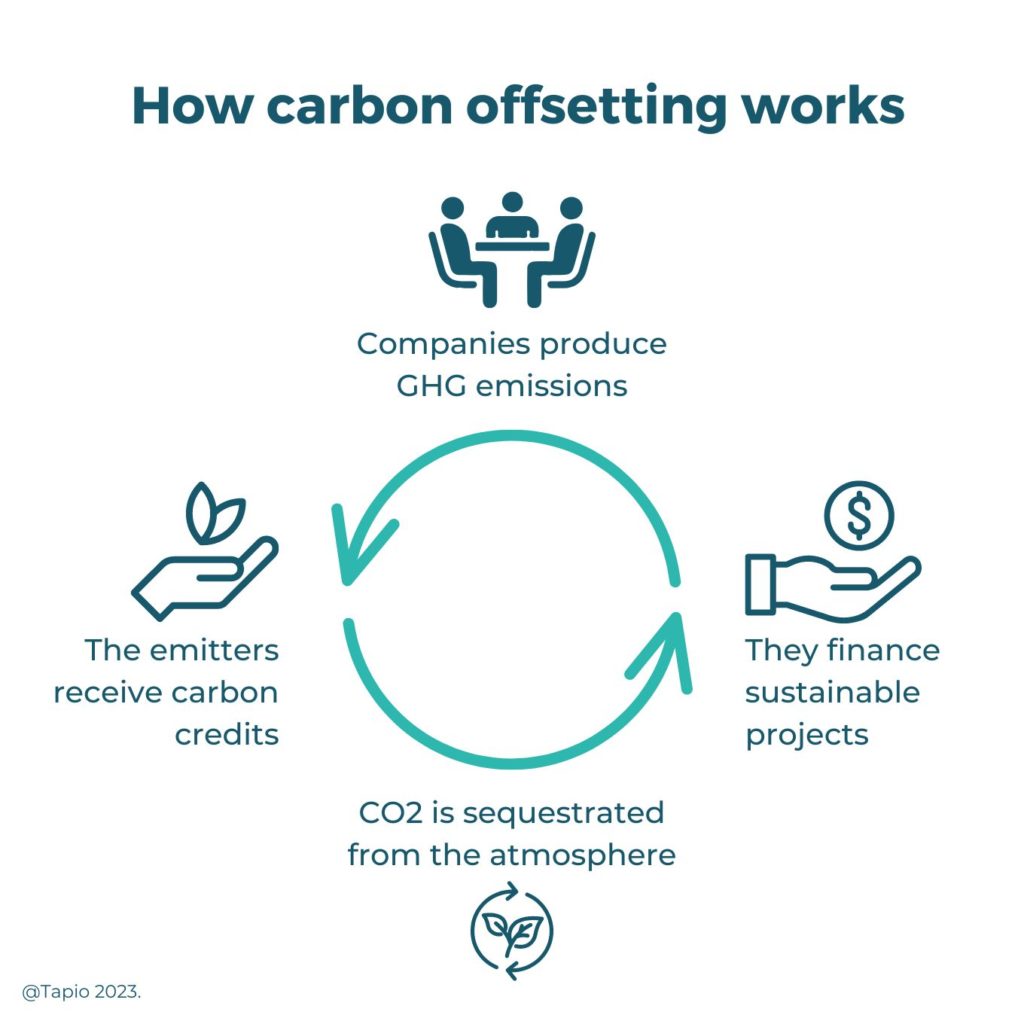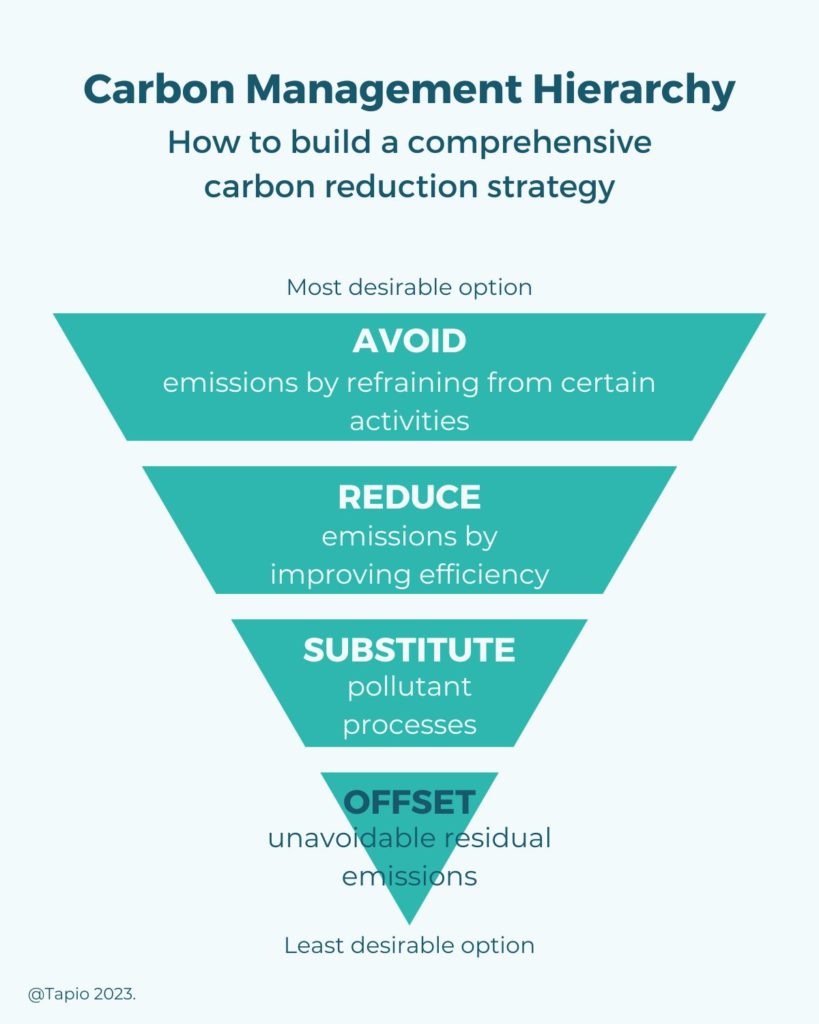Carbon reduction vs. carbon offsets: what should I choose for my business?
Reading time: 3-4 minutes
Reading time: 3-4 minutes

We’ve all seen at least once a label on a product or website claiming to be “carbon neutral”, only to discover that that neutrality was achieved through carbon offsets and not a real reduction of their carbon footprint. The market of carbon offsets has been growing increasingly, but recently we’ve seen it slowing down among raising doubts on the effectiveness of this practice.
In this article we will explore what carbon offsets are and discuss how effective they are compared to a carbon reduction strategy.
Carbon offsets, or carbon credits, are tokens that companies can buy in order to extract carbon emissions from the atmosphere. Usually, the companies that buy carbon offsets are from developed countries, while the projects financed by this system are located in developing countries.
Since this market has started growing only in the last decade, it is still quite unregulated. However, in November 2022, the European Commission adopted a proposal for an “EU-wide voluntary framework to certify high-quality carbon removals” as part of the European Green Deal. It is still a voluntary framework, so EU companies are still able to freely decide if they want to adhere to it or not.
On top of this, national standards or laws might apply, but they concern the misuse of labels rather than the regulation of carbon offsets. For example, in Belgium and in France, the misuse of “carbon neutrality” labels is punishable by law with a fine of up to 100.000 €.
Among the rise of greenwashing accusations around carbon neutrality claims, we might ask ourselves if carbon offsets are truly effective. The answer is: it depends, but most of the times they aren’t. Many factors influence the effectiveness of carbon credits, such as their quality and the whole sustainability strategy of the companies involved. Overall, though, merely adopting this practice is not enough for a company to demonstrate its sustainability.
Many studies have demonstrated how carbon credits aren’t a good enough strategy. For example, it’s more and more clear how planting trees won’t solve climate change, since the positive impact that these practices claim is often overestimated. Moreover, it is important to point out that there aren’t enough carbon credits available to be able to offset the totality of our current carbon footprint.

In the EU proposal mentioned earlier, criteria have been established that can be integrated into a framework to evaluate the legitimacy of carbon credits. The regulation establishes four Q.U.A.L.ITY criteria:
However, as we mentioned before, this framework is only voluntary, so it’s not enough to regulate the carbon credits market. Generally speaking, it’s always a welcomed gesture for companies to contribute to carbon sequestration projects, but they can never substitute the reduction of a company’s own carbon emissions.
If one thing is for sure is that contributing to carbon sequestrations projects doesn’t directly affect the environmental impact of a company and they can’t be an excuse to avoid reducing the emissions produced by it. Moreover, corporate carbon reduction strategies are beneficial for numerous reasons:
Overall, we have shown that carbon offsets can only be a part of a bigger carbon reduction strategy that aims at reducing the carbon footprint of your business. As you can see below, there are steps that a company should take before considering offsetting.

If you want to make your company more sustainable, start by calculating its carbon footprint. This would involve calculating your current scope 1, 2 and 3 emissions. After doing that, you’ll be able to create an effective low carbon strategy for your company.
If this feels overwhelming, we advise working with sustainability and carbon experts. At Tapio, we offer a platform on which you can do all this while being supported by our experienced sustainability experts.